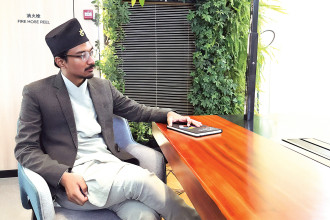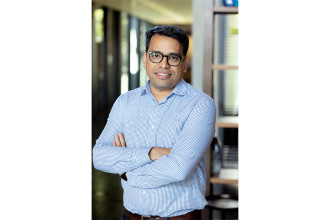
In a society where patriarchy is the norm, making a mark as a women entrepreneur is a task that is harder than it needs to be. The Federation of Woman Entrepreneurs Associations of Nepal or FWEAN was designed as a means to alleviate this very issue. Founded by women for women, through its works, this non-profit NGO sought to give woman entrepreneurs a fighting chance. Since its inception in 2003, FWEAN has seen steady growth and change in Nepal. Here’s a peek into their journey: When asked about what was the driving force behind the creation of FWEAN, Reeta Simha, the current president of FWEAN says, “The founders of FWEAN felt economic empowerment and women entrepreneurship were essential for sustainable nation building.” She goes on to explain that for the nation to truly have a skilled workforce that is capable of contributing to the national economy, it needs to be ensured that both sides of the population receive the same opportunities. Simha shares that the mission for FWEAN has always been socio-economic empowerment and entrepreneurial development of women. Simha has been an active part of FWEAN for over a decade and half and explains that the organisation is strongly focused on lobbying for policy reforms pertaining to women empowerment, forming entrepreneurial opportunities in different communities, establishing WEAN chapters throughout the nation, and promoting the skills of each of its members.
Currently, FWEAN functions through an executive board of 27 members, each of whom are successful entrepreneurs in their respective fields. The organisation also has over 50 chapters across the nation, and is present in all seven provinces of the country. But how does one approach FWEAN and become a part of it? Simha replies, “It’s a member-based organisation. To become a part of FWEAN, the woman entrepreneur should have a registered business in her name or should be in a decision-making position of the business. After they have submitted the membership, there is a membership committee who goes through the application and they visit the organization. Once the requirements are met, they become a member.” Simha understands the level of effort that is required for FWEAN to truly accomplish its mission. “Finance is still a big challenge for women” shares Simha. She says that they lobbied and were able to successfully get the government to establish an entrepreneurship development fund where women could get Rs one to five lakhs collateral fee on subsidised interest for women micro entrepreneurs, but she questions, “What about small and medium sized enterprises? FWEAN again lobbied and ultimately Rs 15 lakhs in subsidised loan, collateral fee was made available. She says, “Our network has become bigger and now commercial and government banks have signed MoU to help women entrepreneurs with loans and financial literacy.” Simha shares, “More and more INGOs want to work with our federation because we are promoting women entrepreneurship. An example would be, CIPE, a private enterprise development INGO from USA who are helping us in institutional development and strengthening the chapters.”
Besides CIPE, FWEAN is actively working with Lutheran World Federation (LWF), International Labor Organization (ILO), CECI – UNITERRA among others. Simha says that FWEAN not only works for socio economic empowerment of women also helps entrepreneurs form connections crucial for their businesses to run. She shares that FWEAN has also been working in several districts conducting expos and training programs for women; “We offer trainings on business proposal writing and technical skills, financial literacy, how to approach banks, link them to the banks, offer market and industry exposure.” FWEAN is present in all seven provinces, and by 2022 aims to be in all the 77 districts. Simha rues that the government while introducing new policies to promote entrepreneurship fails to consult with stakeholders. She complains, “Most local women are just transitioning from an informal to formal environment; they don’t know how to operate bank accounts, sign cheques and things like that, they are not yet ready for that.” FWEAN’s finds its responsibilities expanding to help develop financial, legal and business literacy among women throughout the country. In the long run, Simha shares that she wants FWEAN’s efforts to be translated into big companies with big capital that are exporting and selling locally.






